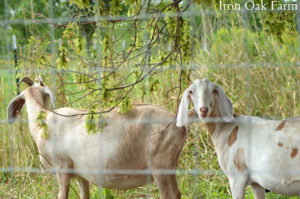 We all wish that we could go back to our younger selves and give some advice. For example, I’d like to tell my 20-year-old self to get married sooner, have kids younger and save more. Although we can’t go back in time, we can learn from those who have lived before us, and who have experienced things we’re interested in doing for ourselves.
We all wish that we could go back to our younger selves and give some advice. For example, I’d like to tell my 20-year-old self to get married sooner, have kids younger and save more. Although we can’t go back in time, we can learn from those who have lived before us, and who have experienced things we’re interested in doing for ourselves.
So for those of you who are just starting out in the homesteading world, and are interested in adding animals to your homestead, here are some money saving tips that I wish I had known before starting out.
1. Take your time building up your stock
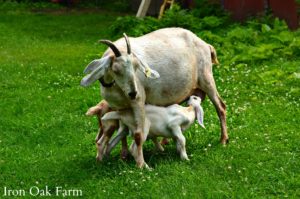 Lots of time, when you start homesteading you’re driven by momentum. Each purchase or addition seems to inspire another addition. A garden inspired chickens, which inspires a goat, which inspires a pig and so on. But each of these additions requires housing, fencing, and many other specified needs. My advice is to start small and slow. Start with a small flock of chickens. And when you get really good at tending your small flock, add a few more. If that’s still enjoyable and manageable, start researching your next endeavor.
Lots of time, when you start homesteading you’re driven by momentum. Each purchase or addition seems to inspire another addition. A garden inspired chickens, which inspires a goat, which inspires a pig and so on. But each of these additions requires housing, fencing, and many other specified needs. My advice is to start small and slow. Start with a small flock of chickens. And when you get really good at tending your small flock, add a few more. If that’s still enjoyable and manageable, start researching your next endeavor.
2. Animals should not be impulse buys
Another rule we have put in place is that we don’t bring an animal home unless we’ve researched the care and expense that goes into that animal extensively.
We also don’t bring home an animal unless we have a secure, completed housing and run for said animal.
In other words, plan before you purchase.
So many times I would see a goat or a rabbit that needed a home. I’d bring it home thinking “we’ll make it work.” Which led to emergency pen building that sometimes kept us up until 4 am in the morning. Rushing and overall frantic exhaustion which zapped the joy of the initial addition of the animal.
3. People will want to give you animals
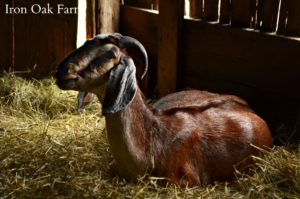 “Oh, you have a farm? Well, my sister’s boyfriend’s next-door-neighbor has a cow in his apartment and the landlord doesn’t allow cows… could you take it?”
“Oh, you have a farm? Well, my sister’s boyfriend’s next-door-neighbor has a cow in his apartment and the landlord doesn’t allow cows… could you take it?”
Just…Say…No!
Now that’s not to say that if you have the means and the desire to give an animal a home that is needed, by all means, do so. But just because someone else made a mistake, doesn’t mean you should feel guilted into housing all the creatures that other people mistakenly buy.
4. Be wary of Free
Or very under-priced animals. I’ve learned a lot about goats over the years. When we got our first two does I was so excited about having baby goats and fresh goat milk that we purchased the first buck we came across. He was inexpensive and I had no idea about his lineage.
He was fine…but the kids he threw were tiny and hard to keep weight on. We had to spend a ton in feed to keep them at an ideal weight.
Another pair of goats (our first dairy goats) we got a “great deal” on came home infested with lice, a severe case of coccidiosis and roundworms. $800 in vet fees proved that the “great deal” was no deal at all.
5. Invest in Good Housing and Fencing
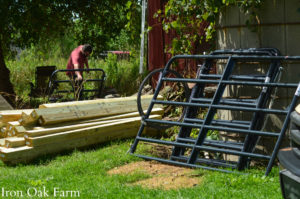 We’ve replaced our goat fence twice since we’ve lived here and both times we’ve bought inexpensive, slap-together fencing to try and save money, and every time we curse ourselves because we should have done it right the first time.
We’ve replaced our goat fence twice since we’ve lived here and both times we’ve bought inexpensive, slap-together fencing to try and save money, and every time we curse ourselves because we should have done it right the first time.
Last year we finally replaced the cheap fencing with high-quality fencing meant for goats and it’s held up wonderfully.
Housing and fencing can be an expensive aspect of farming. Saving for and investing in good structures will keep your animals safe and make keeping them a whole lot more enjoyable.
6. Feed the best feed you can afford
Animal feed can be confusing. It can be hard to know what is best for each animal. But feed, in my opinion, is one of the best ways to ensure healthy animals. Quality feed designed for each species can save you a lot of headaches and trips to the vet. Note that the most expensive feed does not mean it‘s the best, but the cheapest feed may not be the best choice. You want a good balance of vitamins and minerals along with correct protein levels.
7. Implement Preventative Health Routines with your Animals
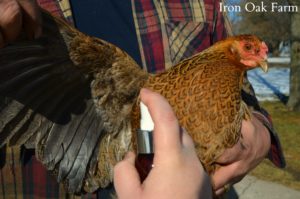 Preventing disease, worms, parasites, and injuries is always less expensive than treating once it’s a problem. Take the extra time to keep shots up-to-date, do the stool checks and inspect animals regularly.
Preventing disease, worms, parasites, and injuries is always less expensive than treating once it’s a problem. Take the extra time to keep shots up-to-date, do the stool checks and inspect animals regularly.
8. Don’t let fear keep you from keeping the animal of your dreams
I’ve wanted a goat since I was a little girl. And while I don’t think you should rush into keeping an animal, I also think that at some point you have to just trust yourself and go for it. I was intimidated by keeping livestock. I was worried I’d do something wrong especially when it came to breeding and goat birth. But I’ve learned so much over the years and our animals have been healthy and happy despite our learning curve. If we can do it, you can do it.











4 Comments
Thank you for sharing!
From North Ogden, Utah
what is the best breed for meat and resale of kids
Great article! Those are wise words: free animals (or “bargain” animals) are often the most expensive of all! It also applies to horses, which can have problems like lameness that isn’t readily evident; chickens which can be incompatible with yours.
Our livestock guardian dog “raised with goats” and purchased from an unknown AKC “champion breeder” killed our lambs instead of guarding them! We should have gotten a cheaper pup from a local farmer so we could see the pup with livestock.
When that rescue dog kills all of next year’s laying hens and it’s too late in the season to replace chicks, regret is only part of what you’ll experience! This has happened to a number of big- hearted people we know. Your sympathy for that unwanted dog can cost you thousands in chick replacement, feed, and eggs sales.
Each new animal introduced can bring all sorts of inter-species transmissible diseases as well. Yes, coccidiosis is one a dog or sheep can have. Google Merck Manual and read it. Mistakes can be very costly!
I learn a lot watching how others “care” for their livestock,or use hog panels for fencing that is not suitable for goats.What happens when you skimp? Injuries,make shift fencing,neglected animals-and it shows.
I sooo look forward to a time when I can care for my future livestock the RIGHT way,not the slapdash ways I see those I live near.
Very good article where the points illustrated are important for healthy,happy interaction with animals.
Thank you!